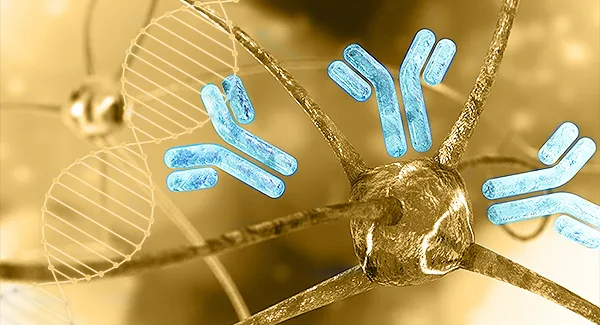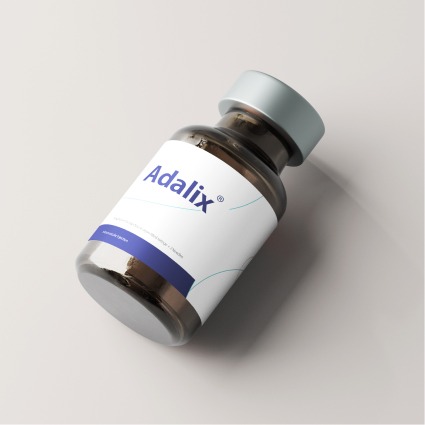Introduction
Monoclonal antibody therapy has proven to be a game-changer for many patients with chronic and life-threatening diseases. This case centers around a cancer patient, Sarah (name changed for anonymity), who battled non-Hodgkin lymphoma (NHL). Her journey from diagnosis to recovery highlights the potential of these therapies in transforming lives.
Diagnosis and Initial Challenges
At 52 years old, Sarah was diagnosed with stage IV non-Hodgkin lymphoma, a cancer that affects lymphocytes, a type of white blood cell. Her condition had already progressed to a point where traditional chemotherapy and radiation presented significant risks, especially given her age and other underlying health conditions. After consultation with her oncologist, it was determined that she was a candidate for monoclonal antibody therapy due to specific biomarkers present in her cancer cells.
These biomarkers, notably the CD20 protein, allowed for a more targeted treatment approach, offering hope where chemotherapy alone could be overly toxic or ineffective.
Choosing Monoclonal Antibodies as a Treatment Option
Monoclonal antibody therapy works by identifying and attaching to specific antigens on cancer cells, flagging them for destruction by the immune system. Sarah’s doctors recommended using a monoclonal antibody that targeted the CD20 protein on her lymphoma cells. By combining this with a reduced dose of chemotherapy, they aimed to attack the cancer without overwhelming her immune system.
The decision to use monoclonal antibodies was not taken lightly. Given the severity of Sarah’s condition, time was of the essence. Her oncologist was optimistic, noting that targeted therapies like monoclonal antibodies have revolutionized cancer treatment by allowing doctors to minimize collateral damage to healthy cells.
The Infusion Process: First Step to Recovery
The first infusion took place in an outpatient setting. Sarah was understandably anxious, but the process was relatively straightforward. The monoclonal antibodies were delivered intravenously, and over the course of several hours, the drug entered her bloodstream. The goal was simple: attach to the CD20 proteins on the surface of the cancer cells and mark them for destruction by Sarah’s immune system.
Her medical team monitored her closely during the infusion, watching for any immediate side effects, such as allergic reactions. Thankfully, Sarah tolerated the injection well, with only mild fatigue and a slight fever afterward, both subsiding within a day or two.
The Results: A Turn for the Better
After just a few weeks, Sarah began to see significant improvements. Her energy levels were higher, and follow-up scans showed that the lymphoma had begun to shrink. The monoclonal antibodies had successfully tagged the cancer cells, enabling her immune system to target and kill them.
By the end of her treatment cycle, Sarah’s cancer was in remission. Her doctors credited the success to the precision of monoclonal antibodies, which allowed for an effective attack on the cancer without the severe side effects often associated with traditional chemotherapy.
Challenges Faced During Treatment
Despite the positive response, Sarah did face challenges. Monoclonal antibody therapy, like all treatments, is not without risks. Over the course of her treatment, she experienced occasional nausea, low-grade fevers, and fatigue. However, these side effects were far less severe than the damage chemotherapy would have caused on its own.
Additionally, Sarah needed to undergo regular monitoring to ensure the treatment was progressing as expected. Blood tests and imaging were required every few weeks to track the response of her cancer to the therapy, ensuring that the disease was shrinking and that no new growth was occurring.
Long-Term Prognosis and Follow-Up
Sarah’s story is one of hope and recovery, but it also underscores the need for continued vigilance. While her cancer went into remission, the long-term outlook for patients who undergo monoclonal antibody therapy varies. Some patients may experience a recurrence of their cancer, while others go on to live cancer-free for many years.
In Sarah’s case, she continues to undergo regular check-ups to ensure that the lymphoma remains in remission. Her doctors have discussed the possibility of booster treatments in the future, should her cancer return or new treatments become available.
Monoclonal Antibody Therapy: A Game Changer in Oncology
The use of monoclonal antibodies in cancer treatment has transformed the field of oncology. Targeting cancer cells with precision, these therapies offer patients like Sarah a new lease on life, with fewer side effects and a higher chance of remission. Unlike chemotherapy, which can damage both healthy and cancerous cells, monoclonal antibodies home in on the disease itself, sparing much of the surrounding tissue.
For patients who meet the criteria, monoclonal antibody therapy offers a powerful alternative to traditional treatments. In Sarah’s case, it allowed her body to fight the cancer effectively while avoiding many of the long-term complications associated with aggressive chemotherapy.
Conclusion: A Life Transformed
Sarah’s story is a testament to the power of monoclonal antibody therapy. Her journey from diagnosis to recovery demonstrates the hope these therapies offer to patients who might otherwise face a grim prognosis. With continued research and innovation, monoclonal antibodies will undoubtedly play an even larger role in cancer treatment, offering targeted, effective, and less invasive solutions to patients worldwide.
Her remission offers a glimpse of what’s possible, and her experience serves as a beacon of hope for others who are exploring monoclonal antibody therapy as a treatment option.
Visit Opal Biopharma to explore how cutting-edge research is transforming care for chronic and genetic diseases.

